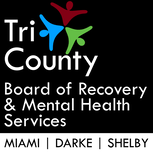206 Communication with Sensory Impaired Individuals
Original Approval Date: December 21, 1994
Revision Effective: April 19, 2023
The Tri-County Board of Recovery and Mental Health Services shall provide persons with sensory impairment, including vision and hearing, with qualified sign-language interpreters and other auxiliary aids at no cost to them to allow them an equal opportunity to participate in and benefit from services.
The Tri-County Board of Recovery and Mental Health Services shall require its contract agencies to adopt similar policies.
When necessary, the Board will obtain the services of a certified interpreter through appropriate available resources. Board staff will authorize and arrange for interpreters when required.
If there is a certified interpreter on the staff of the Board, that individual may be utilized instead of an outside interpreter. In-house interpreters will be authorized to leave their regular duties during the time they are interpreting.
Persons with sensory impairment or their representatives shall be asked to indicate how they communicate most effectively.
No payment need be made to persons volunteering his or her own resources.
Any request to use family or friends by the sensory-impaired person following an offer by the Board to provide an interpreter will be documented and will be honored unless the Board feels the person selected is not sufficiently qualified and elects to provide another interpreter. Documentation will include a written statement signed by the sensory-impaired person or his/her representative.
The Board may exercise discretion as to when an interpreter is necessary, as routine visits may not require extensive communication.
In addition to interpreters, the Board shall make available a range of auxiliary sensory aids. These shall include, at a minimum, access to a TDD/TTY machine through the Ohio Relay Service.
Revision Effective: April 19, 2023
The Tri-County Board of Recovery and Mental Health Services shall provide persons with sensory impairment, including vision and hearing, with qualified sign-language interpreters and other auxiliary aids at no cost to them to allow them an equal opportunity to participate in and benefit from services.
The Tri-County Board of Recovery and Mental Health Services shall require its contract agencies to adopt similar policies.
When necessary, the Board will obtain the services of a certified interpreter through appropriate available resources. Board staff will authorize and arrange for interpreters when required.
If there is a certified interpreter on the staff of the Board, that individual may be utilized instead of an outside interpreter. In-house interpreters will be authorized to leave their regular duties during the time they are interpreting.
Persons with sensory impairment or their representatives shall be asked to indicate how they communicate most effectively.
No payment need be made to persons volunteering his or her own resources.
Any request to use family or friends by the sensory-impaired person following an offer by the Board to provide an interpreter will be documented and will be honored unless the Board feels the person selected is not sufficiently qualified and elects to provide another interpreter. Documentation will include a written statement signed by the sensory-impaired person or his/her representative.
The Board may exercise discretion as to when an interpreter is necessary, as routine visits may not require extensive communication.
In addition to interpreters, the Board shall make available a range of auxiliary sensory aids. These shall include, at a minimum, access to a TDD/TTY machine through the Ohio Relay Service.
